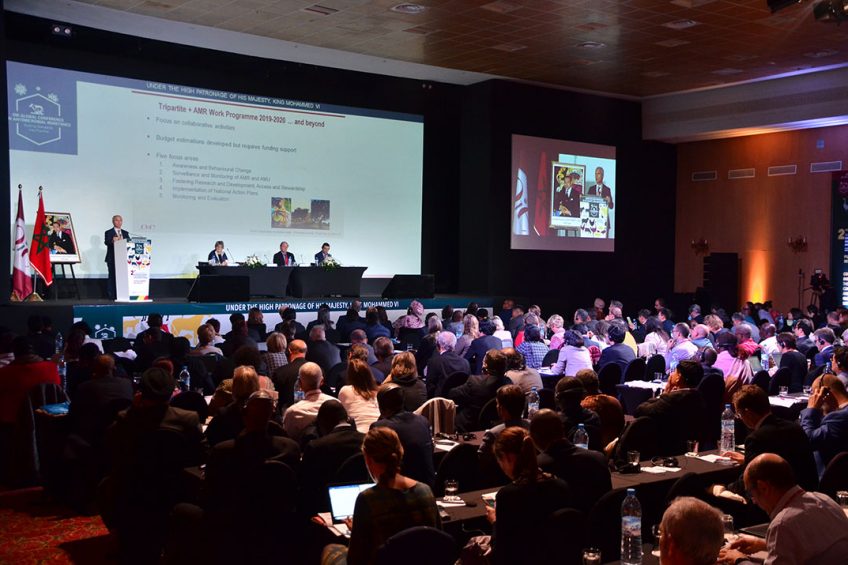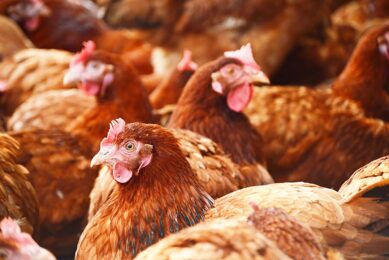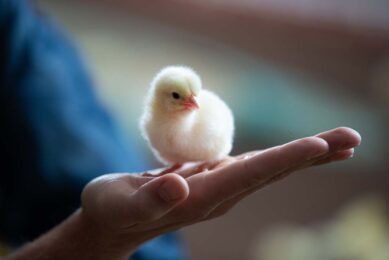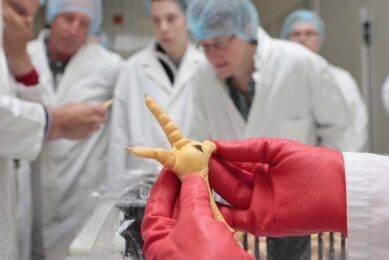Global Conference on AMR: Starkest health challenge

Agriculture Ministers from around the world met at the 2nd Global Conference on Antimicrobial Resistance and Prudent Use of Antimicrobial Agents in Animals, organised by the World Organization for Animal Health in Marrakesh to discuss national action plans aimed at controlling the use of antimicrobials in order to address the global rise of antimicrobial resistance.
The Second OIE Global Conference comes at a critical juncture in the fight against antimicrobial resistance (AMR). Antimicrobials are essential to control and treat infections in animals and humans, but they are losing their efficacy because they are not being used prudently and responsibly. The increasing movement of people, animals and goods across international borders enables resistant microbes to colonise the planet with ease, which impacts the future of food safety and security, animal health and human health.
AMR: One of the 21st century’s starkest global health challenges
There is a critical need to address the threat posed by antimicrobial resistance to human, animal and environmental health. The significant scientific, economic and social challenges posed by AMR are now widely recognised by governments, the private sector, academia, organisations representing civil society, and increasingly consumers. Strong multi-sectoral collaboration at an intergovernmental level has been instrumental in elevating awareness and initiating coordinated action in the last years, the OIE concluded. However, now it is time to build upon this momentum and further inform stakeholders with the aims to increase understanding of the current global situation on antimicrobial resistance in animals, and to develop recommendations for future sustained control of AMR while ensuring animal health, animal welfare, veterinary public health, and food security.
Ministerial panel
Speaking in front of official representatives from OIE’s 182 Member Countries, the ministerial panel – which included Ministers and Vice Ministers from Germany, Japan, Norway, Thailand, Botswana, Senegal, Serbia and Uzbekistan – spoke openly about their own countries’ challenges and successes, as well as the particular issues faced by developing countries. Also speaking on the panel, Hanne Maren Blåfjelldal, State Secretary at the Ministry of Agriculture and Food in Norway said, “Norway is a world leader in animal health, and this stems from good cooperation between our government, responsible veterinarians, and a competent, engaged livestock sector. We are committed to using our own experience in preventing the spread of antimicrobial resistance to help other countries work towards minimising this threat in their own farming sectors.”

“As a complex problem, antimicrobial resistance requires a comprehensive action plan bringing together many sectors,” said fellow panellist Grisada Boonrach, Minister of Agriculture and Cooperatives for Thailand. “In Thailand, we are working together from the local level up to the national level to fight antimicrobial resistance in our country and globally.”
“OIE standards were a good basis for Germany in developing our national strategy, and to date the strategy appears to be working,” said Julia Klöckner, Germany’s Federal Minister for Food, Agriculture and Consumer Protection. “Transparency is key, and demonstrates to farmers, scientists and all sectors that their actions are being taken seriously, and being used to improve animal and public health.”
Restrict critically important antibiotics
According to the most recent data collected by OIE, as of 2015, 64 countries had regulations in place against the use of antimicrobials for use in growth promotion. There is an international consensus that such use should be phased out, and countries should immediately restrict use for growth promotion purposes of those antibiotics that are listed by the WHO as Highest Priority Critically Important Antibiotics for human medicine.
“We want to help all of our Member Countries to improve their ability to implement the OIE International Standards,” said Matthew Stone, Deputy Director General of the OIE. “Through the OIE Database on Usage of Antimicrobial Agents, the OIE builds national capacity – amongst all countries – to collect data and track antimicrobial use in animal health. This is a key indicator of our progress in preventing the development of AMR.”
Dame Sally Davies, Co-convener, United Nations Interagency Coordination Group on AMR added, “When it comes to AMR, there should be no apportioning of blame. It is our shared problem and we don’t expect a country to reach perfection overnight. That is why the OIE is leading the adoption of a gradual approach, whereby the phasing out of the use of antimicrobials as growth promoters is simultaneously supported by the promotion of better animal husbandry practices.”
Join 31,000+ subscribers
Subscribe to our newsletter to stay updated about all the need-to-know content in the poultry sector, three times a week. Beheer
Beheer








 WP Admin
WP Admin  Bewerk bericht
Bewerk bericht